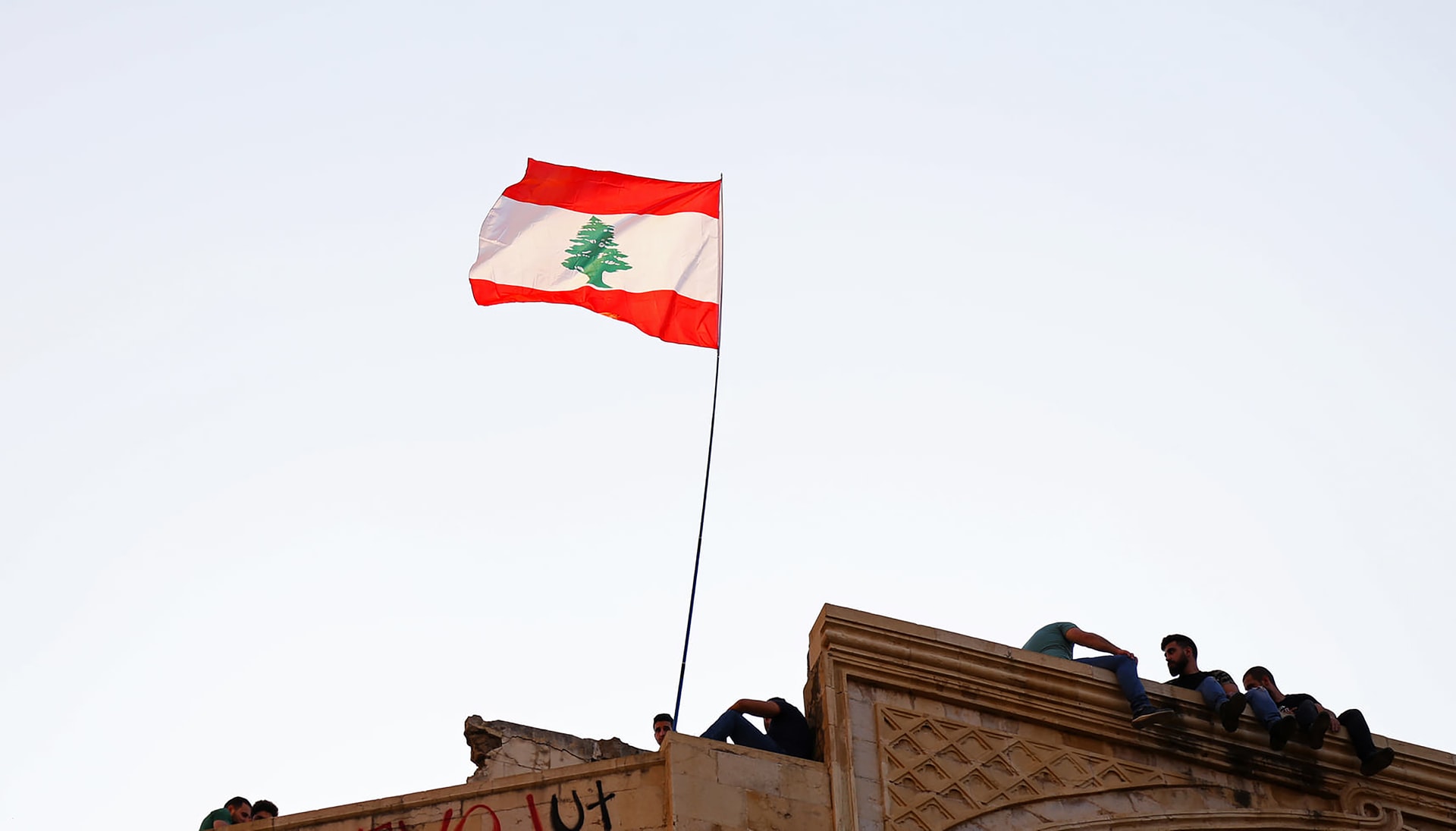International community must step up efforts to fight corruption in Lebanon
In the last few weeks, a dispute between Israel and Lebanon over their maritime border has once again flared up after Iranian-backed Hezbollah militants threatened to employ violence to prevent Israel from tapping into natural gas reservoirs located in contested waters. For more than a decade, the two countries have been wrangling over the border in the Mediterranean sea with an eye on controlling the rich Qana and Karish gas fields, which would make whoever controls them an energy powerhouse in the region.
With the world now struggling to deal with the knock-on effects of Russia’s invasion of Ukraine on global energy supplies, natural gas deposits are once again a hot commodity. Resolving the dispute between Lebanon and Israel quickly is therefore all the more urgent, as doing so would green light the extraction of the underwater gas needed to meet global demand.
For Lebanon, resolving the dispute and obtaining a share of the gas fields would represent a unique opportunity to get the country’s shattered economy back on track. However, when looking at Lebanon’s recent past, it is far more likely that the country’s corrupt political class will once again divert any newfound wealth away from the Lebanese people. And while the international community often plays a crucial role in fighting corruption, arguably more needs to be done to change Lebanon’s current direction of travel.
The heavy legacy of corruption
Ever since the end of the civil war in the 1990s, Lebanon’s resources have been squandered by systemic corruption, nepotism and vast networks of clientelism. The dreams of recovering prosperity after the Civil War have now faded, as 82% of the population currently lives in poverty, triple-digit inflation has become the norm, and Lebanon is in danger of becoming a failed state. The frequency of desperate and angry protests is on the rise, with experts fearing violence will continue to escalate.
Bribes, embezzlement and kickbacks are common in most public or private services, with only a minuscule part of the state budget actually going to covering basic services, leading to food, water, energy and medical shortages. This state of affairs has made Lebanon much more vulnerable to the multi-layered crisis of the 2020s, with both the pandemic and fallout from the war in Ukraine hitting the country especially hard.
But perhaps the most visible manifestation of the corruption and mismanagement that has dogged Lebanon was during the 2020 Beirut explosion, which killed 218 people and left over 300,000 without a home. The cause was determined to be almost 3000 tons of confiscated ammonium nitrate which was being improperly stored in the Beirut harbour for years, despite several warnings sent by customs officials.
Infecting every sector of the economy
While the mismanagement that led to the Beirut explosion eventually came to light, corruption in Lebanon often hides beneath the surfaces, discretely infecting every corner of the country’s economy. In the energy sector, for instance, the public state owned-provider (Electricité du Liban) is widely seen as one of the country’s most corrupt institutions. In a particularly cynical move, in 2020 EDL worked with Algerian oil giant Sonatrach to unload contaminated fuel on unsuspecting Lebanese consumers. Even if Lebanon did manage to secure its grip on the gas fields, it is difficult to see how it would stop corruption and shady business practices from squandering the proceeds.
But other sectors of the Lebanese economy have also witnessed their fair share of corruption. The financial services sector, for instance, has long enabled the country’s elite to move stolen wealth offshore and cover up economic crimes. The 2021 financial leak known as ”Pandora Papers” confirms that billions of dollars are syphoned out of the country every year with the help of public and private banks.
Often, the conduct of Lebanon’s financial institutions has also caused major scandals. For instance, the Intercontinental Bank of Lebanon (IBL) is at the heart of a scheme spanning several countries, allegedly granting a fraudulent $150 million loan to Korek, an Iraqi telecom which is under the control of powerful Kurdish warlords. Investors who were kept in the dark of the loan, such as Kuwait-based Agility, have decided to take the matter to court. And while the matter is being decided in Lebanese courts, recent history teaches that, unfortunately, even blatant cases of corruption can go unpunished.
Is enough being done?
Often, when faced with such issues, the international community plays an instrumental role in piling pressure on Lebanese politicians and institutions to carry out reforms. For example, several EU countries have started conditioning aid in the wake of the Beirut blast on the complete overhaul of Lebanon’s rotten central banking system.
But sometimes international action falls short of the mark. Just last year, for instance, the International Centre for Settlement of Investment Disputes (ICSID) – a tribunal that is part of the World Bank Group – refused to rule in favour of Agility in a case it brought against Iraq for its role in the Korek scandal. The ruling is worrisome for many countries in the region, not least of which Lebanon, as it proves the limits of international oversights and represents a significant setback to the fight against corruption.
The failure to adequately punish wrongdoing and graft, such as that embodied in the ICSID ruling, not only calls into question the ability of countries such as Lebanon to rid itself of the scourge of corruption, but also the international community’s resolve to truly eradicate it.
With anger and desperation growing each day, Lebanon is moving further and further away from the prospect of a peaceful nation. Corruption is not the country’s only problem and no one could have predicted the global turmoil of the last couple of years. But the extent to which corruption has infested crucial sectors such as food, energy or banking, is turning every crisis Lebanon faces into a full-blown tragedy.

